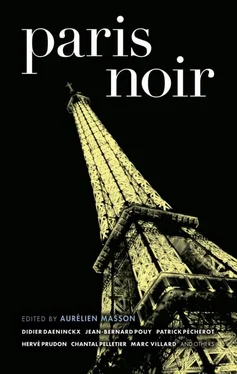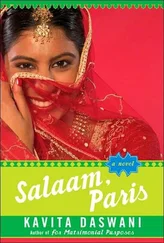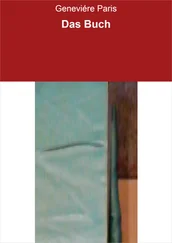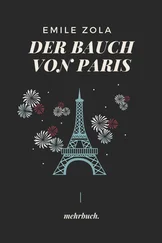Salim Bachi - Paris Noir
Здесь есть возможность читать онлайн «Salim Bachi - Paris Noir» весь текст электронной книги совершенно бесплатно (целиком полную версию без сокращений). В некоторых случаях можно слушать аудио, скачать через торрент в формате fb2 и присутствует краткое содержание. Город: New York, Год выпуска: 2008, ISBN: 2008, Издательство: Akashic Books, Жанр: Детектив, на английском языке. Описание произведения, (предисловие) а так же отзывы посетителей доступны на портале библиотеки ЛибКат.
- Название:Paris Noir
- Автор:
- Издательство:Akashic Books
- Жанр:
- Год:2008
- Город:New York
- ISBN:978-1-933354-63-7
- Рейтинг книги:3 / 5. Голосов: 1
-
Избранное:Добавить в избранное
- Отзывы:
-
Ваша оценка:
- 60
- 1
- 2
- 3
- 4
- 5
Paris Noir: краткое содержание, описание и аннотация
Предлагаем к чтению аннотацию, описание, краткое содержание или предисловие (зависит от того, что написал сам автор книги «Paris Noir»). Если вы не нашли необходимую информацию о книге — напишите в комментариях, мы постараемся отыскать её.
Paris Noir — читать онлайн бесплатно полную книгу (весь текст) целиком
Ниже представлен текст книги, разбитый по страницам. Система сохранения места последней прочитанной страницы, позволяет с удобством читать онлайн бесплатно книгу «Paris Noir», без необходимости каждый раз заново искать на чём Вы остановились. Поставьте закладку, и сможете в любой момент перейти на страницу, на которой закончили чтение.
Интервал:
Закладка:
Paris Noir
Introduction [1] Introduction translated by Nicole Ball
Enter the dream

Good to finally hear from you but don’t forget to send me an introduction .
This e-mail from Akashic Books publisher Johnny Temple has been blinking on my computer screen for the last two days. But when I chose to work in book publishing, it was precisely to avoid having to write anything; I want to stay in the background, the way a bass player stands in the dark and smiles as he watches the guitarist launch into a wild solo.
I kept going around and around without a clue, like a mouse on its wheel, until I finally decided to visit Momo, the old guy who sells used books in my neighborhood. If Paris is still and always will be a “noir” city, it’s in part because of Momo and his toiling colleagues, the dozens of small, independent bookstore owners who sell old pulp fiction from the ’50s through the ’70s. Amateurs meet every weekend and swap their own finds for new treasures. Momo’s the one who trained me as a kid by handing me Goodis, Thompson, Chandler. So you can just see him going soft all over at the idea of the Série Noire making it to the American scene. We, the French, are good at importing things... but exporting is another story.
We’re having a smoke outside the well-lit café, Momo and me. It’s been eight months now that smokers walk around the sidewalks in circles like penitents. My first time in New York, I got a kick out of watching the ballet of smoked-out people moving in and out of bars. Never in France, I said to myself. But we French end up doing everything exactly as the Americans do, a few years later at best. So the time is right to include Paris in the Akashic Books Noir Series. Momo thinks, and rightly so, that I’m short of brilliant ideas, so there he goes drawing a historical picture of Paris, the city of crime. He tells me about the working classes, exceptionally dangerous, who peopled the belly of Paris in the nineteenth century, until the bourgeoisie kicked them out with big avenues and urban renewal under the reign of the late, unlamented Baron Haussmann.
Two beers later, Momo is on the Butte Montmartre with the gangsters of the ’30s and ’50s, the early days of junk deals, streetwise Parisian kids, and loud, foul-mouthed prostitutes whose slang could frighten even the bigwigs. The problem with Momo is that he loves beer and the more he’s in love, the less clear his ideas are. He’s now on to the filmmaker Melville, the actor Alain Delon (he’s one of our specialties like unpasteurized Camembert), and sepia photographs.
But all of a sudden it dawns on me that practically nothing of this improvised lecture has registered, and I get all tense. No wonder you learn things in classrooms, not sitting on hard stools in cafés where the atmosphere is too bright (as in the famous “ Atmosphère, atmosphère, estce que j’ai unegueule d’atmosphère, moi?” — Arletty’s indignant response to Louis Jouvet in the film Hôtel du Nord ).
Back in front of my insomniac computer, this is what I tell myself: The key thing to say is that Paris is a city that lives, and thus dies, every day. No point hiding behind history or war memories. What is a threat to Paris, to its noir dimension even, is potential “museumification,” the possibility of the city turning into a big theme park. In Paris, after all, everything is still there. All you have to do is look around with eyes wide open. In the shadows of his big car, the chauffeur in Marc Villard’s story dreams about saving the love of his life, a prostitute stranded on the asphalt like a bird caught in an oil spill. Further up north, around the train station, Jérôme Leroy follows in the footsteps of a guy on the run with the feds at his heels, and the men in black aren’t simply agents of the FBI. Concurrently, Salim Bachi lets us examine two young men of Arab descent who have a hard time fitting into a closed society; unfortunately, whether in Paris, New York, or Karachi, it’s hard to resist the temptation of violence, always present, insidious, and sneaky.
And what about that Chinese guy, delightfully depicted by Chantal Pelletier? He thought he’d have a taste of the famous French cuisine... until he realizes that the choice dish will be himself.
Far from cliché postcard photos, we witness the revenge of the waiters along with Jean-Bernard Pouy: They go to a lot of trouble to locate an unknown jogger who has mysteriously stopped taking his daily run through the Place des Vosges and disappeared.
Everything takes place in cafés, not just Momo’s beer-soaked history lessons. That’s where the doomed lovers in this volume meet to secretly celebrate Christmas. Didier Daeninckx’s reporter, an expert in tracking rumors on the Internet, was also seen for the last time in a café, before getting stabbed to death on rue des Degrés. But who knows, maybe those weren’t actually rumors after all. And speaking of rumors, don’t tell DOA that the violence of the Russians is only a rumor. Let him tell you about his precious girlfriend, a Russian model who loved diamonds too much to go unnoticed. Behind the fake jewelry and the glamour, the fashion world hides serious predators. Ask Layla, Dominique Mainard’s heroine in “La Vie en Rose,” if she really sees life in rosy tints. To her, life is nothing like a reality-TV show; the budding young singer who dreamed of having top billing will end up very low on this earth. No Grammy for the young dreamer, only a body bag. Under its polished stones, Paris remains the place of daily tragedy; under the Parisian pavement, there’s the Peloponnese. Like that son of Laurent Martin’s coming back home after a long exile to find that you can’t escape from your ghosts or from the love you have lost.
Beyond the lights, beyond the cafés and bars, Paris is sometimes like a grave. It’s a city you run away from, or at least dream of running from. But on every street corner, the past jumps at your throat like a grimacing hyena. Patrick Pécherot will take you for a walk into the heart of the 17th arrondissement; in fact, the Gestapo were based in that area in the early ’40s. Some would give all the money in the world to have a dead memory, but when your mind starts playing tricks on you, life quickly turns into a nightmare. Or into madness... Watch Hervé Prudon walk around the 14th arrondissement; if you ask him for directions, don’t talk to him in English: You’ll run the risk of having him answer, “No comprendo The Stranger.” My advice to you is to follow him without a word; take side streets, stroll with him along rue de la Santé, where you’ll find a jail, a psychiatric hospital, and Samuel Beckett’s last place of residence. Discover his magical Paris which exists only inside his head.
You don’t inhabit your city, you dream it. All I can do now is invite you to enter the dream.
Aurélien Masson
Paris, France
August 2008
Part I
City of lights, city of darkness
The chauffeur [2] Translated by Nicole Ball
by Marc Villard
Les Halles
Vania
I wasn’t too far from Les Halles, that’s my fate.
Above the parking garage.
Right next to the Sunside with its tenor sax crazies. I’d pace the streets at noon along with the type of people who never work, but also Krauts smashed on beer and sluts from the Midwest.
Leather and lobotomy.
I’d walk on my shitty heels. The sexy black whore from Martinique. We worked our asses off, the pimps circled around, sold and resold the girls to each other; Alicia had even said to me, “Vania, give up the street, you deserve better.”
Читать дальшеИнтервал:
Закладка:
Похожие книги на «Paris Noir»
Представляем Вашему вниманию похожие книги на «Paris Noir» списком для выбора. Мы отобрали схожую по названию и смыслу литературу в надежде предоставить читателям больше вариантов отыскать новые, интересные, ещё непрочитанные произведения.
Обсуждение, отзывы о книге «Paris Noir» и просто собственные мнения читателей. Оставьте ваши комментарии, напишите, что Вы думаете о произведении, его смысле или главных героях. Укажите что конкретно понравилось, а что нет, и почему Вы так считаете.












